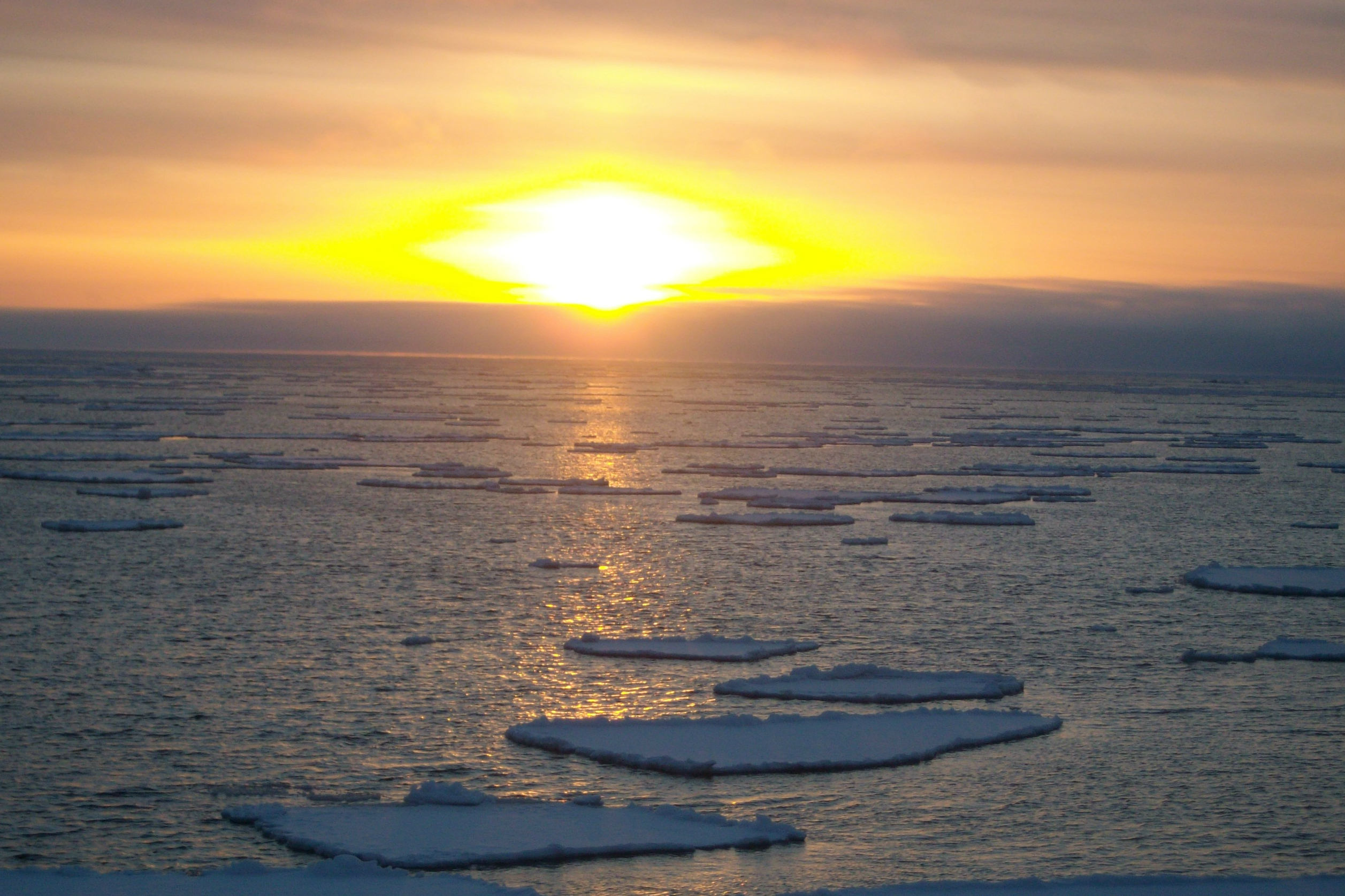Ignoring climate change won’t diminish the threat it poses to Alaska
Pretending that climate change isn’t happening in Alaska won’t slow down the rise in temperature, the melting of the permafrost or the disappearance of sea ice.

Sea ice coverage in the Northern Hemisphere is usually the most widespread in March — but this year that’s not the case in the Bering Sea.
The retreat of sea ice there, one of the most obvious signs of climate change, provides a powerful warning that humans are going to have to adapt to new conditions in the Arctic.
Neither this winter’s dramatic Bering Sea ice retreat nor any other single event can be solely attributed to climate change, but the warming conditions make seasons with low ice cover more likely.
How ironic is it then that just as open water has taken over a large part of the Bering Sea, Alaska Gov. Mike Dunleavy overturned a state effort to better position the state to respond to climate change in an orderly fashion.
Dunleavy canceled an effort started in late 2017 by former Gov. Bill Walker to find “innovative solutions to the challenges of a rapidly changing climate, informed by the best available science and technology, integration of indigenous and local knowledge, and consideration of Alaska’s economic interests.”
The remote coastal villages of western Alaska are among those most endangered by climate change because they are vulnerable to storms that are bound to be more destructive when the ocean is open than when the ice provides cover and a measure of safety.
Numerous villages are one major storm away from being wiped out. If and when such a storm strikes, the state will respond — it just won’t be as organized as it could be with a mitigation plan.
The Climate Action Task Force released a report last fall that promoted renewable energy developments and other steps, most of them not controversial.
The report found gaps in the coordination of local responses to climate change and urged the state to be more assertive and proactive. A common theme was the need for more research and better information on which to act.
“Funding for environmental monitoring efforts is currently not sufficient to meet known needs, especially those in Western Alaska where land and ocean changes due to climate change are dramatic and year-round data is lacking,” the group said.
The members said the state had to prepare for “fisheries closures, loss of food security, infrastructure loss and degradation, and the need for communities to relocate where protecting in place is not possible.”
The Dunleavy decision to try to ignore climate change was expected because he had made much during his 2018 campaign of his antipathy to any discussion of the subject.
But pretending that climate change isn’t happening in Alaska won’t slow down the rise in temperature, the melting of the permafrost or the disappearance of sea ice.
What it will do is make the state less capable of coping with the uncertainties about every aspect of life from fish and game to the condition of vital infrastructure.
Dunleavy in many ways is a captive of his rhetoric, as the report produced by the climate change study group dealt more with adapting to the changing environment than any political matters. The document laid out sensible ways the state could plan and prepare, actions that now will be haphazard at best.
When Walker set up the group he asked, among other things, for experts and community leaders to “evaluate risks and adopt measures to address or reduce the vulnerability of Alaska’s citizens, environment, and infrastructure to climate change impacts.”
Before Dunleavy won the election, Walker had said that it didn’t matter who held the governor’s office, the state had to take action. He said the evidence is so clear that no one could turn away without putting the state at greater risk.
“Whoever’s in this office and takes the time to look at take a lot at what’s happening in this state. . .we are at ground zero,” he said. “You cannot step over this issue. It is right in front of us.”
It’s unfortunate, but Walker was wrong. Dunleavy is doing his best to ignore what’s right in front of us.
Dermot Cole can be reached at de*********@gm***.com.
The views expressed here are the writer’s and are not necessarily endorsed by ArcticToday, which welcomes a broad range of viewpoints. To submit a piece for consideration, email commentary (at) arctictoday.com.